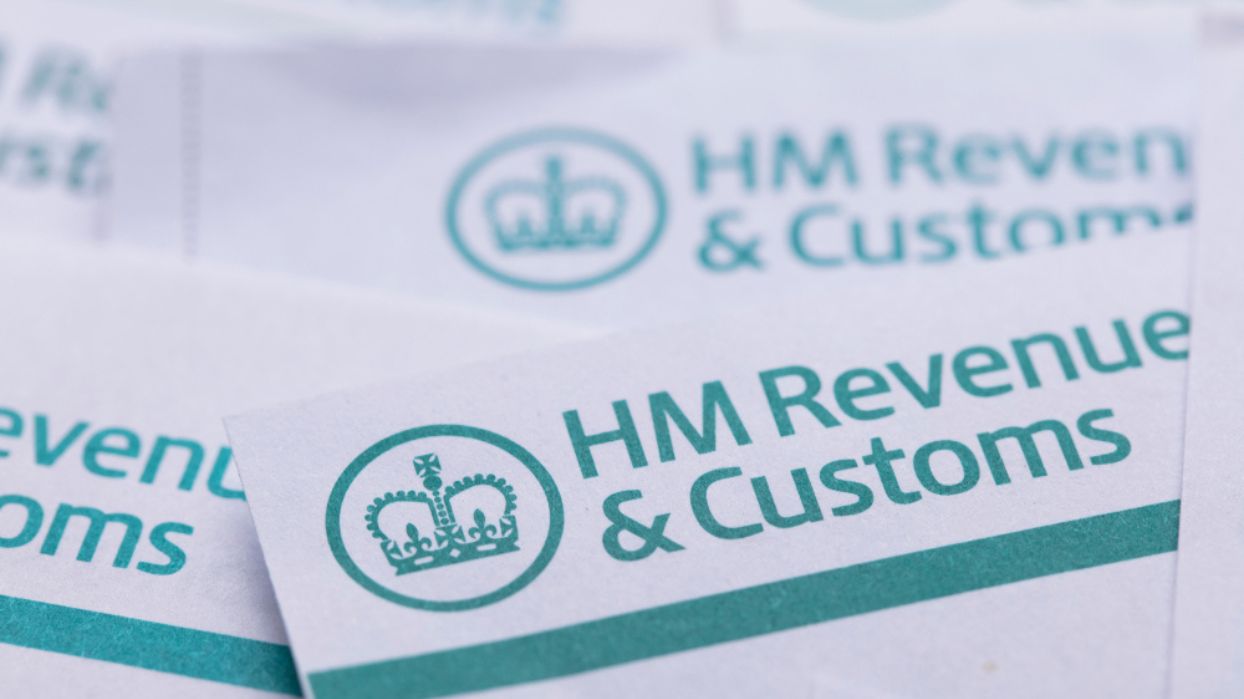The courts and tribunals have the power to ensure there is no abuse of their procedure that would cause unfairness for one of the parties. In the context of tax penalties, this often arises in order to prevent already determined issues from being re-litigated as part of the penalty appeal. Recent case law makes it clear there can be no abuse of process where there has been no substantive determination of the facts and issues by the tribunal. However, the question as to whether that threshold has been met in a given case can be open to argument.
In an article first published in Tax Journal, senior associate Anastasia Nourescu examines HMRC’s approach and three scenarios in which it may raise an abuse of process argument.
Abuse of process can be raised as an argument by either party in a wide range of circumstances, but there appears to be an emerging trend of HMRC raising it in cases where a taxpayer seeks to challenge a penalty based on an earlier decision or assessment. HMRC’s increasing deployment of this argument in recent years has led to a body of case law which considers how the abuse of process doctrine applies in penalty appeals.
Abuse of process in the tax tribunal
What constitutes abuse of process in court proceedings? The concept stems from the case of Henderson v Henderson (1843) 3 Hare 100. It has been more recently defined in Hunter v Chief Constable of the West Midlands Police [1982] AC 529 by Lord Diplock, who held that abuse of process ‘concerns the inherent power which any court of justice must possess to prevent misuse of its procedure in a way, which although not inconsistent with the literal application of its procedural rules, would nevertheless be manifestly unfair to a party to litigation before it, or would otherwise bring the administration of justice into disrepute among right-thinking people’.
Abuse of process is not to be confused with issue estoppel, which is a type of claim preclusion (‘res judicata’) that prevents a party from re-litigating an issue the court has previously determined. The Privy Council in Caffoor v Income Tax Commissioner [1961] AC 584 held that issue estoppel could not arise in relation to tax assessments as the question of tax liability for one tax year is ‘inherently a different issue’ from that of tax liability for another year. The principle in Caffoor remains good law in cases where the question to be determined relates to a taxpayer’s tax liability for a particular year or period of assessment (as confirmed in Littlewoods Retail Ltd v HMRC [2014] EWHC 868 (Ch)).
It is well-established that the First-tier Tribunal (FTT) has the power to strike out an appeal where it would be an abuse of its process to allow the taxpayer to pursue the appeal. In Shiner and Sheinman v HMRC [2018] EWCA Civ 31, the Court of Appeal held that the FTT’s power to strike out an appeal under rule 8(3)(c) of the Tribunal Procedure (First-tier Tribunal) (Tax Chamber) Rules, SI 2009/279, on the basis that the appellant’s case had no reasonable prospect of succeeding was wide enough to include a power to strike out an appeal for abuse of process.
In deciding whether to strike out an appeal on the grounds of abuse of process, the tribunal must make a ‘broad, merits-based judgment which takes account of all the facts of the case’, as set out in Johnson v Gore Wood & Co [2002] 2 AC 1. In that case, the Court of Appeal held it was not possible to ‘formulate any hard and fast rule’ as to whether abuse arises in any particular case. However, a wealth of helpful case law sets out how the principle in Johnson v Gore Wood & Co applies in the context of tax cases.
The three main scenarios in which HMRC may raise an abuse of process argument are explored below. For illustrative purposes, this article focuses on the situation where HMRC has raised an abuse of process argument as part of an appeal against a penalty based on an underlying decision or assessment. However, similar arguments may arise in other cases where a subsequent decision is based on an earlier decision.
A recent example is the case of GB Fleet Hire Ltd v HMRC [2022] UKUT 307 (TCC), in which HMRC deregistered the appellant for VAT and refused their subsequent application for VAT registration on the basis of that earlier deregistration. In that case, the Upper Tribunal set aside the FTT’s decision to strike out the appeal on the grounds of abuse of process and remitted it to the FTT for a full hearing.
Scenario 1: No appeal against underlying decision
The first scenario concerns a case where the taxpayer has appealed the penalty decision but not the earlier decision or assessment on which the penalty is based. The tribunal has repeatedly made it clear that the penalty appeal should be allowed to proceed in such circumstances.
A recent example is the decision in C4C Investments Ltd v HMRC [2022] UKFTT 367. This was an appeal against penalties in respect of inaccuracies in the appellant’s tax returns, where the penalties were based on earlier Kittel denials of input tax deduction the appellant had not appealed. The appellant applied to amend its notice of appeal to include two new grounds, namely that the inaccuracy in its returns was not deliberate and that the transactions were not fraudulent.
Although the FTT refused the application, it held that it was not an abuse of process for the appellant to seek to challenge the penalties on the basis that the transactions to which they related were not connected with the fraudulent evasion of VAT, and the appellant did not and could not know of any such connection. In para 46, Judge Vos held that ‘it is difficult to see how it can be an abuse of the tribunal’s process to raise an issue which has not previously been raised before the tribunal in other proceedings’.
Judge Vos accepted that this could provide an advantage to a taxpayer who does not appeal against the underlying assessment over a taxpayer who appeals against the assessment but whose appeal is withdrawn or struck out on procedural grounds. However, Judge Vos held this to be the correct conclusion.
Restricting a taxpayer’s right to challenge a penalty in these circumstances would also constitute an unjustifiable breach of article 6 of the European Convention on Human Rights, which protects a person’s right to a fair trial. A tax penalty is a criminal offence for the purposes of article 6, which means the taxpayer must be presumed innocent until proven guilty. This means HMRC bears the burden of proving that the penalty was rightly charged, including by reference to any issues relating to the underlying assessments that have not already been determined by the tribunal.
Scenario 2: Appeal struck out on procedural grounds
The second scenario concerns a case where the taxpayer has appealed the underlying decision, but the appeal has been withdrawn or struck out on procedural grounds. The way the tribunal handles this will vary depending on the circumstances of the case, but the case law indicates that in most cases, it will not be an abuse of process to pursue the penalty appeal.
The most notable case on this scenario is HMRC v Kishore [2021] EWCA Civ 1565. The Court of Appeal considered an abuse of process argument raised by HMRC where the appellant had previously appealed against a Kittel decision, but his appeal had been struck out for failure to comply with an unless order.
The Court of Appeal held there was no authority for the proposition that, absent a special reason, it is an abuse of process for the appellant to raise by way of defence to a penalty a point that he raised in previous proceedings, where those proceedings were struck out for procedural reasons. In addition, in accordance with Johnson v Gore Wood & Co, ‘all the facts of the case’ had to be taken into account, including the fact that the earlier appeal had not been progressed due to lack of funds rather than due to any ‘wholesale disregard of the rules’ by the appellant. This is particularly relevant where the lack of funds has been caused, at least in part, by the other party to the proceedings. The Court of Appeal held that there was no abuse of process and remitted the penalty appeal to the FTT to be heard in full.
The position is similar where the appellant has withdrawn the earlier appeal. In Hackett v HMRC [2016] UKFTT 781 (TC), the FTT held that as there had been no determination of the facts and issues by the tribunal, it would not be an abuse of process for those facts and issues to be determined as part of the penalty appeal. As in scenario 1, a taxpayer can counter any suggestion of abuse of process by reference to article 6: to ensure a fair trial, it is still for HMRC to prove that a penalty applies.
Where there is no substantive tribunal determination of the decision underlying the penalty, any issues arising from that decision that are relevant to the imposition of the penalty will have to be considered by the tribunal in the penalty appeal.
Scenario 3: Substantive tribunal decision issued
The third scenario concerns a case where the taxpayer has appealed the underlying decision, and the tribunal has considered and dismissed that appeal. This is the typical situation the principle of abuse of process is intended to catch. In this case, any attempt to challenge the penalty on the basis of issues the tribunal has already determined is likely to constitute an abuse. However, the tribunal will make a ‘broad, merits-based’ evaluation on a case by case basis.
Galvin v HMRC [2016] UKFTT 577 (TC) is an interesting case that falls within this scenario. HMRC had previously denied input tax recovery to the appellant’s company on the basis that the relevant invoices were invalid. The FTT dismissed the company’s appeal as the transactions recorded in the invoices were fictitious and found the appellant’s evidence to lack credibility. HMRC subsequently issued a penalty to the company and gave notice that it proposed to recover the penalty from the appellant. The appellant challenged the penalty, but his appeal was struck out after he failed to progress it. The appellant then applied for his appeal to be reinstated, and HMRC applied for strike out on abuse of process grounds.
In deciding to grant HMRC’s cross-application, the FTT held there was abuse of process despite the fact the appellant was not a party in the earlier appeal. It said the appellant was the sole director of the company, which acted as his ‘alter ego’. One point raised by the appellant’s counsel was that it was not an abuse of process in criminal proceedings (the penalty appeal) to reconsider findings made in a previous civil trial (the invalid invoice appeal), as the burden of proof is different in the two. However, the FTT did not accept this argument: although a penalty may constitute a ‘criminal offence’ under article 6, the standard of proof in a penalty appeal before the FTT remains the balance of probabilities.
There is also no room for article 6 arguments in this situation. If the taxpayer has appealed against the underlying decision and the tribunal has substantively determined their appeal, they have had a fair trial. A refusal to allow the taxpayer an opportunity to reopen the same issues in a subsequent appeal against a penalty does not amount to a breach of their article 6 rights.
Final thoughts
The courts have made it clear there will only be abuse of process where there has been a substantive determination of the decision or assessment underlying the penalty. Despite the wealth of recent case law on this, HMRC appears to view many penalty appeals as a ‘second bite of the cherry’, even where the tribunal has not considered the earlier decision. It is hoped HMRC will review its stance and only seek to pursue abuse of process arguments where it is appropriate to do so.
Senior Paralegal Jordan Coppin contributed to this article.
You can find further information regarding our expertise, experience and team on our Tax Litigation and Resolution page. If you require assistance from our team, please contact us.
Subscribe – In order to receive our news straight to your inbox, subscribe here. Our newsletters are sent no more than once a month.





